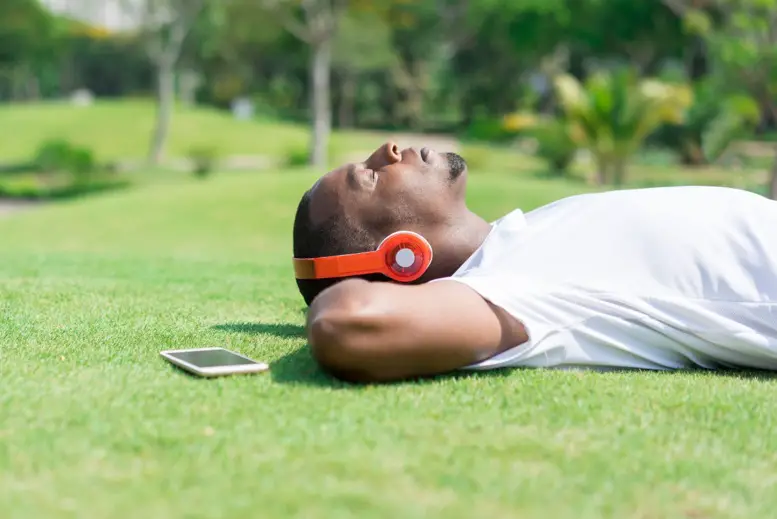With modern lives growing busier and more pressure-filled than ever before, managing stress is an important priority for mental and physical well-being.
Stress is the body’s natural response to pressure, demands, or threats in the environment.
Chronic unaddressed anxiety takes a serious toll that cuts lifespan and leads to diseases over time.
The good news is that equipping yourself with effective stress management strategies fosters resilience against life’s inevitable pressures.
In this article, we will explore a variety of practical, evidence-based techniques for preventing excessive anxiety hormones from building up during demanding seasons.
From identifying personal triggers to relaxation activities, social support, and time management – implementing a regular self-care routine through small daily choices offers lifesaving effects that all busy professionals or individuals can benefit from.
The next sections will outline proven strategies for doing so.
Identify Your Stress Triggers
It’s important to gain awareness of what exactly triggers your body’s stress response regularly.
Some common catalysts include work or school pressures, financial worries, family or romantic relationships, and more. MedlinePlus give a deeper dive into stress types, signs, and causes.
To pinpoint your unique stressors, consider keeping a daily anxiety journal for one week or longer. Write down circumstances that coincided with feeling stressed out.
Document your physiological symptoms as well such as headaches, upset stomach, muscle tension, or changes in sleep. Analyzing your journal entries should reveal patterns about what consistently induces physical stress reactions in you.
Once you have identified at least several of your major anxiety triggers, you’ll be equipped to start minimizing or avoiding them proactively.
Visit rest and digest for more info on how to manage stress.
Practice Relaxation Techniques

Finding small but effective ways to relax and unwind is critical for counterbalancing stress hormones and their physical effects on the body.
Incorporating relaxation activities into your daily routine helps counteract anxiety and brings your nervous system back into a restorative balance.
Deep breathing, meditation, yoga, massage, and listening to calming, instrumental music are all accessible relaxation techniques.
Get Regular Exercise
Physical activity is one of the most powerful anxiety-fighting tools available.
When we exercise, our body releases endorphins which are feel-good chemicals that can leave us with a sense of euphoria. Additionally, exercise helps lower levels of anxiety hormones like cortisol and adrenaline that accumulate when we’re feeling overwhelmed.
Experts recommend getting at least 30 minutes of moderate exercise like brisk walking, cycling, sports, or dance on most days. But even shorter 10-minute bursts can start to offer relief from stress and tension built up throughout the day.
The key is finding forms of exercise you genuinely enjoy for consistency.
Commit to anxiety-relieving regular physical activity and watch tension fade away.
Develop a Support System

In times of high stress, having caring people you can rely on for a compassionate ear or helping hand makes challenging situations much more manageable.
Opening up about stressors lifts a heavy mental and emotional burden. Even a simple hug releases oxytocin for natural stress relief. Quantitative research links stronger social ties with lower cortisol levels and reduced risk of anxiety-related health complications.
Reach out to these compassionate people when coping feels daunting alone.
Get Enough Sleep
Quality restorative sleep is important for health, productivity, cognitive performance, and stress management.
Adults regularly need 7-9 hours per night for optimum function. However, our demanding 24/7 lifestyle often leads to shortages.
When fatigued, our prefrontal cortex responsible for complex decision-making, self-control, and regulating emotions essentially malfunctions.
This leaves a limited ability to handle stressful situations constructively. Lack of sleep also dysregulates hormones like cortisol and triggers inflammation throughout the body in the long run.
Aim to establish a regular bedtime routine your body recognizes as wind-down time each evening. Put away electronics at least 30 minutes prior which disrupts natural melatonin production alerting the brain for sleep.
With practice, adequate restoration becomes a stress-beating lifestyle essential.
Manage Your Time Effectively
When anxiety comes from feeling perpetually behind schedule or struggling to complete constant demands, the fix lies in better organization.
Write down all responsibilities for the day or week to visualize the full scope versus operating in constant “catch-up” mode.
Prioritize your list by importance and deadlines, focusing first on high-impact tasks granting the most relief once accomplished.
Learn to kindly say “no” to additional requests stretching you too thin. Be realistic in adjusting schedules versus criticizing self-care as laziness.
Note what strategies worked best to minimize stress or cause burnout needing adjustment.
In Conclusion
Making the effort to proactively manage stress through consistent self-care habits yields profound long-term benefits for both mental and physical health.
While certain sources of pressure cannot always be avoided in life, developing coping strategies empowers us to stay in control when challenges arise.
Prioritizing your mental health through these evidence-based everyday strategies ultimately ensures thriving as a motivated, focused individual with the stamina to weather life challenges smoothly.
Your most valuable self-care possessions are always accessible, so make the small changes empowering optimal living starting today.
Leave Feedback: Was this article helpful?

